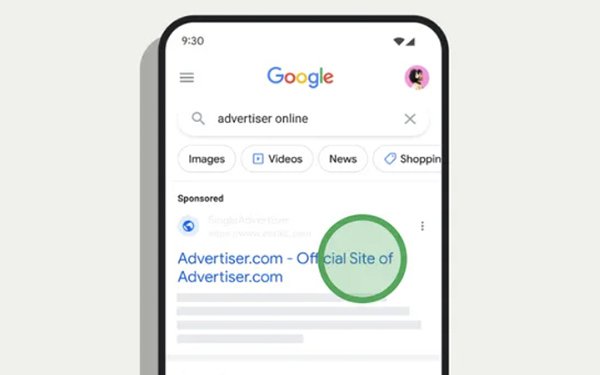
It's an old problem with a new twist since the
search industry added generative AI to its tool chest. But this predictive model that improves navigation for better search ad visibility and engagement based on a landing page makes Steve Oriola, CEO
of Unbounce, which supports landing pages, very happy.
In February, Google refined its advertising quality systems by adding a predictive model to better evaluate landing page quality and
experiences for search ads.
Company developers created a new prediction model that helps ads quality systems more precisely capture the quality of the navigation experience when visiting a
Search ad’s landing page.
The company improved the ability to understand and predict whether a Search ad leads to an unexpected destination and does not offer other helpful navigation
options.
advertisement
advertisement
As a result -- believe it or not -- Google can serve fewer ads per search, reducing these types of negative experiences for people searching on Google. The company made the change to
improve the experience for people doing searches and clicking on ads.
“Google is making itself responsible for whatever happens beyond the click,” Oriola said.
He
added that the move will lead to quality landing pages.
He does not believe that generative artificial intelligence and agentic agents will eliminate the need for landing pages. It is
competitive to search volume, he said, but feels adamant the technology won’t eliminate it.
About 44% of marketers send clicks to their home page or website, using them as a landing
page, but not specifically a landing page for a product or service.
Cost, lack of motivation and quick response times to a request might be some of the reasons, or they just don’t
understand the value of a landing page, Oriola said.
“Designing an extra page each time you design an ad may be too much,” he said. “You can replicate brand elements, visuals
and aesthetics. They may do that, but it’s important to optimize the landing page for conversions because that’s what Google sees.”
It’s not clear what will happen to
landing pages once agentic AI in the browser will process the search and purchase.
I asked Oriola what happens when agentic AI eliminates the need to go to a landing page. When I provided an
example, he called the example a lot of “user experience, desire and intent presumptions, where a user makes a request and it shows up their door. It’s not the way I shop.”
He also made a good point that shopping is not the entire reason people go on the internet to search. Agentic AI can do these things for someone, but the person isn’t likely to allow it to do
it without reviewing and approving it.
“We think there’s a lot of value in agentic AI, but it doesn’t eliminate search, websites and presentations of content,” Oriola
said. He stopped short of providing details on some of the things his company is working on.
Unbounce formed a data-science team in 2016 when the company decided to turn a landing-page
platform into an experimentation platform and build an A/B testing solution and a full optimization platform by adding smart traffic that can route between multiple landing pages.
In 2021 it
began to “dabble” in generative AI before the technology took off in advertising. Agentic AI is the next frontier, but it will not eliminate search and websites, he said.
Frankly,
I’m too picky and prudent to allow agentic AI to pick out my clothes based on a description and add my credit card number online for its use.